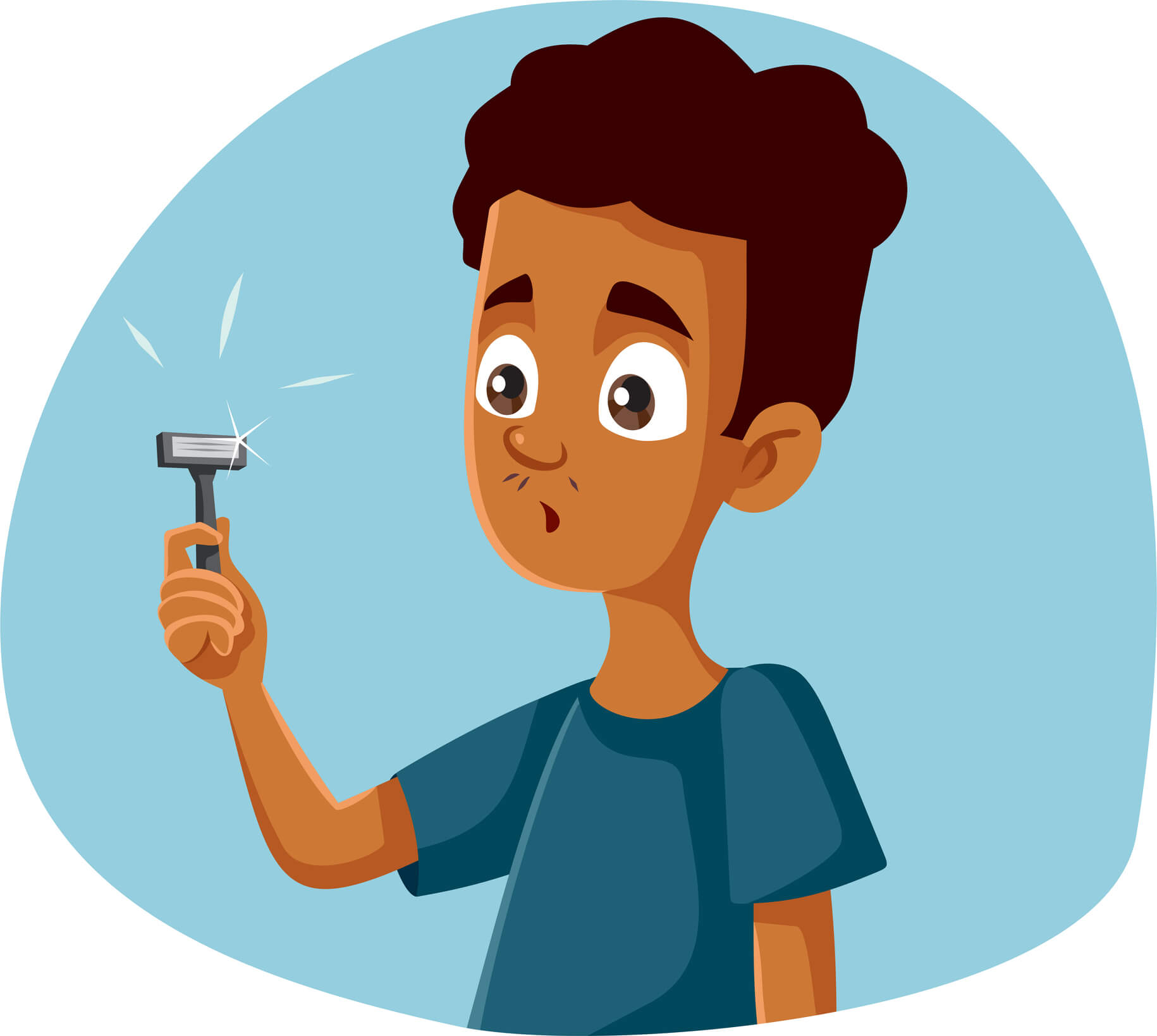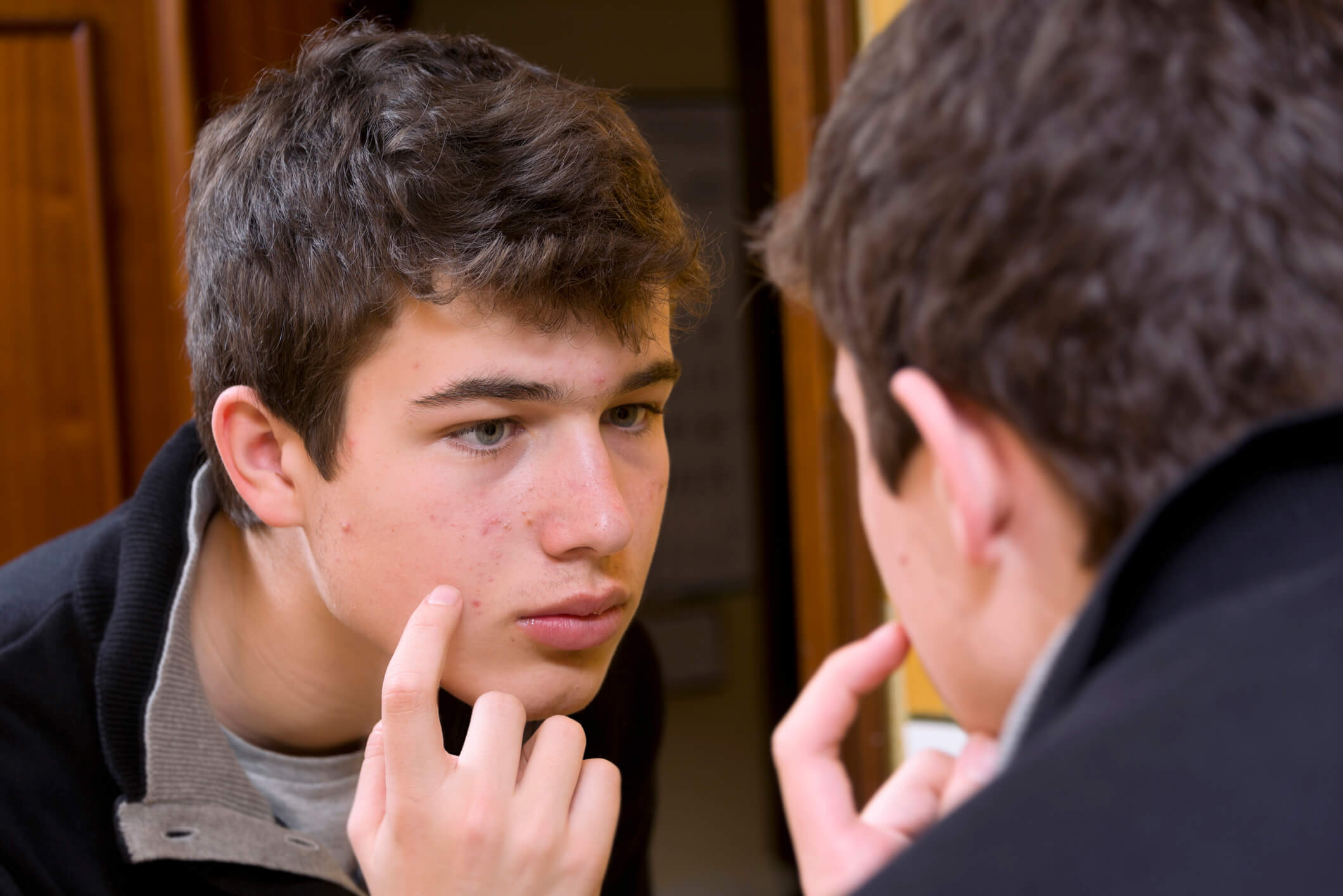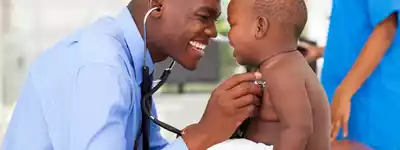
Puberty for Boys
11/15/2021
Body Changes and Development in Males

Last week, we discussed puberty in girls. This week we are going to be learning about puberty in boys. Some of it is similar but there are lots of new things to discuss! We will discuss the normal course of events as well as early or late puberty.
Puberty
Puberty is the changes in our bodies created by hormones. The changes include growth, sexual characteristics, the maturation of reproductive organs that results in the ability to have children. It also includes changes in metabolism, personality, and mood.
Terminology
Before we can learn about puberty, we need to make sure we know the correct terminology for male reproductive organs and genitals.
Male also have external and internal reproductive organs. External organs include the penis and scrotum. The penis is an organ that is filled with nerves, blood vessels, and other tissues but does not include a bone. These size of a penis changes. When it is soft it is smaller, when it fills with blood and becomes erect it is larger. The penis has a foreskin. If it is removed at birth, it is what we called circumcised.
The tip of the penis has a hole. This is the opening of the urethra. Urine and semen pass through the urethra and exit the body. These two fluids cannot pass at the same time, it is one or the other and is never mixed.
The other visible external organ is the scrotum. The scrotum is a soft pouch of tissue that holds the testes. The pouch has muscles that help to raise or lower the testes to control the temperature.
Internal organs include the testes. The testes produce hormones and after puberty will produce sperm. The epididymis is a long tube that measures several feet long. It wraps around the testes and provides a location for the sperm to mature. The long length allows time for them to mature and delays the release of the sperm. The seminal vesicles, prostate gland, and Cowper’s gland are internal glands that help make fluids that are associated with ejaculation of sperm.
Onset
The trigger that starts puberty is not understood. We know that once this trigger happens the pituitary gland (a gland in the brain) signals to the testes to start making testosterone. Testosterone will cause the reproductive organs and secondary sex characteristics, such as facial hair and muscle development, to occur. The trigger happens between 9.5 and 13 years of age for most males with noticeable changes happening between 11 and 15 years of age. Puberty can take 5-7 years total from trigger until full growth and maturation.
Changes
Testes Development
Changes to the testes is usually the first sign of puberty in boys. The changes in the testes are the result of an increase in testosterone. The testes may double in size. The scrotal sac will darker, enlarge, and get dotted with tiny hair follicles. The scrotal sac will also thicken. The testes will hang down from the body with the left testicle hanging lower than the right.
Genital Growth
During puberty genital size increased. By age 13 to 18, boys genitals become adult size. During puberty the penis grows longer, then wider. It can also develop pinky pearly bumps. These are normal. Penis size and appearance can be a preoccupation for many adolescent boys. They can worry about the size and function of their penis. Reassurance that penises come in varying length and that length does not affect function.
Erections and Ejaculation
Erections can happen starting in infancy. Erections are when the penis fills will blood due to stimulation. As a baby this can be random or even due to cold air during a diaper change. During puberty erections may be caused by romantic or sexual thoughts or physical contact. They can also happen randomly. During puberty erections can be unpredictable and happen even if unwanted. This will occur less frequently as they grow older.
During puberty, the testes become able to produce sperm and fluid that combine to make semen. About one year after testes enlarge, or between 11-15, males become able to ejaculate semen. Ejaculation can happen spontaneously or during masturbation. Semen contains 200-500 million sperm in just one teaspoon of fluid. This first ejaculation indicates the body can begin to reproduce.
During puberty, boys will have involuntary ejaculations, these often occur at night when sleeping and are called nocturnal emissions, but you will often hear them called “wet dreams”. These will stop as he gets older and are harmless. It is normal if this happens, but it is also normal if this does not happen.
Hair Growth
Pubic hair growth starts shortly after the testes enlarge. Pubic hair starts sprouting just above the penis and on the scrotum. It starts sparse but over 1-2 years increases in density. It starts off distributed in a triangle shaped distribution and but then distribution becomes more diamond shaped. The hair becomes coarser and curlier. Pubic hair then spreads down thighs and up to the navel.
Boys will also grow hair other places on their body but usually this doesn’t happen until 1-2 years after pubic hair starts. They will get on their face and under their arms. Hair on their arms and legs will thicken. They later develop hair on their chest and sometimes back.
If your child is interested in shaving off facial hair, make sure you demonstrate the correct method and discuss changing out razors, infection prevention, ingrown hair prevention, as well as how to take care of cuts. It is also currently “trendy” to remove all pubic hair, do not be surprised if your child shaves or removes this hair. It is particularly important to be careful around the genitals. This hair is thicker and more prone to ingrown hairs so care in prepping the skin should be taken.
Voice Changes
Testosterone causes the voice box, or larynx, and vocal cords to lengthen. This usually happens after the peak growth spurt. It will cause the voice to get deeper. While this growth is happening, it may make the voice crack or sound squeaky at times.
Breast Development
Breast buds are present in all people. During puberty, breast buds can become enlarged in males as well as females. Almost 75% of all boys will notice some growth of breast buds. Oddly, usually one side grows more than the other side. They can often be sore or tender. Breast buds usually return to normal size within a few months.

Growth
When a boy goes through puberty, they experience 25% of all their lifetime growth! Most boys will grow upwards of 13-14 inches and over 50 pounds in 3-4 years. A boy may grow over 4 inches in just 12 months.
Growth does not happen equally in all body parts. First hands and feet grow, then arms and legs grow longer. Often boys appear gangly during this time. After limb growth, shoulders widen, and trunk and face bones grow larger or longer. When the face and neck bones grow longer, voices will become lower in pitch.
Growth for boys also includes broadening shoulders and increases in muscle mass even if not weightlifting. This increase in muscle mass results in increased strength. Boys also have decreasing body fat percentages. Boys generally have body fat percentages that are half of girls’ percentages.
Acne
Acne is a common occurrence during puberty. This is due to hormones and increased oil production. Even with the best skin care, adolescents can still get acne. Acne may occur on face, back, and chest. A good skin care routine with over-the-counter acne products can be helpful. If this does not improve acne, please consult your primary care provider as prescription medications are available.
Frustratingly, both over-the-counter products and prescription products can take 6-8 weeks to make a noticeable difference, and most teens are not known for their patience. Encourage your teen to give a new medication or routine time to work.
Body Odor
Body odor is actually a very early sign of body changes and can occur years before starting puberty! Body odor is the result in puberty changes in sweat glands. Puberty causes sweat glands to change and produce more sweat. The body also produces new chemicals and hormones as well as increases the production of skin oils. The combination of sweat, hormones, oil, and the bacteria found on skin creates strong body odor. Odor can be noted underarms, and from feet and genitalia.
When body odor occurs, it is important to discuss hygiene with your child. Some people cannot smell their own odor, or they may be embarrassed and not know what to do with their body odor. Discuss that they may need to shower, with soap, daily. Increase oil production can also affect hair requiring more frequent shampooing. Deodorant or antiperspirants can help reduce sweating and odor. Your child may also need to launder their clothing and bedding more frequently.
Emotions
Puberty is an emotional rollercoaster! Even before physical changes occur you may notice mood swings. Emotions may change without reason. Emotions may rapidly change. A person may feel overly sensitive, angry, or sad. They may feel uncertain.
Puberty is also a time where a person may be looking for their identity and who they are outside of their family. It is a normal time for kids to want more privacy from parents and siblings.
Puberty itself can trigger a lot of different emotions. They may be sad to be leaving childhood behind. They may be upset that their body is changing. They may feel self-conscious about puberty, their body changes, and their looks and personality.
During puberty, children also develop new sexual feelings. They also are interested in romantic relationships.
This is NORMAL. Is it easy to live with? Absolutely not! But knowing it is normal, that you probably did the same exact thing, can allow us to give our children some grace. If emotions are extreme or your child is feeling sad or depressed for long periods of time, please discuss this with your primary care provider.
Puberty for Transgender Children
Puberty can result in high levels of anxiety for transgender children. This is a time where their body is changing in ways that further the discrepancy between their gender identity and the sex they are assigned at birth. It is important to discuss puberty with your primary care provider. Transgender children should see an endocrinologist to discuss puberty blockers. Puberty blockers are medications that block the physical changes of puberty. These effects are temporary, once the medication is stopped, puberty will resume. Puberty blockers allow transgender children to delay puberty. This gives them time to make decisions that are best for them in an unhurried way.

Medical Care
Before puberty starts and during puberty, body changes may be discussed at yearly well exams. Yearly exams will help ensure puberty is starting when it should but also will be a time for your child to learn and ask about puberty and body changes in a comfortable setting. The needs for good nutrition, daily exercise, and rest should also be discussed.
Boys should examine their testicles for any changes including bumps and lumps. If they note any lumps, color changes to the scrotum, or if they have pain in their testicles, they should seek medical care.
Early or Late Puberty
What is early or late puberty? When should you be worried?
Early Puberty
Early puberty is when puberty starts before the age of 9. There are a few causes of early puberty. Sometimes the body is just speeding up the normal process. Sometimes it is because of abnormal pituitary gland activity. This is called CPP or central precocious puberty. If this is the cause of puberty, an endocrinology will evaluate your child and treat this with medications that turn off the signal to start puberty. This allows puberty to be delayed to a more normal age and allows a child to reach a taller adult height.
Premature Adrenarche is when a child has body odor and pubic or underarm hair before 8 years of age BUT has no enlargement of the testes. This is caused by the adrenal glands (glands on top of the kidneys) secreting hormones that cause these changes. This is not true puberty and does not require treatment. Children who have premature adrenarche tend to be taller.
Late Puberty
Late puberty is when puberty has not start in boys by 14. Constitutional delayed puberty, or late bloomers, is inherited from a parent. A parent would have also had delayed puberty with the mother not having her first period by age 14 or a father not growing until after age 16. There is no treatment needed.
Delayed puberty can also happen due chronic illnesses. It can also be the result of gonadotropic deficiency, which can be present from birth, or from problems with testicles. Testicles may be small, undescended, or damaged due to cancer treatments.
If your child has not started puberty by age 15, they should be evaluated by their primary care and potentially an endocrinologist. Treatment would be based on the cause and may include hormone replacement.
RESOURCES
BOOKS: link here
WEBSITE
Amaze is a website with quick 2–5-minute video providing medically accurate, age-appropriate, affirming honest puberty (and sexuality) education. The videos are short and engaging!
Puberty brings a lot of changes to both boys and girls. Puberty can be uncomfortable to talk about, but knowledge is power. And what comes after the puberty talk, the birds and bees talk! Learn more next week!
Children’s Health Care of Newburyport, Massachusetts and Haverhill, Massachusetts is a pediatric healthcare practice providing care for families across the North Shore, Merrimack Valley, southern New Hampshire, and the Seacoast regions. The Children’s Health Care team includes pediatricians and pediatric nurse practitioners who provide comprehensive pediatric health care for children, including newborns, toddlers, school aged children, adolescents, and young adults. Our child-centered and family-focused approach covers preventative and urgent care, immunizations, and specialist referrals. Our services include an on-site pediatric nutritionist, special needs care coordinator, and social workers. We also have walk-in appointments available at all of our locations for acute sick visits. Please visit chcmass.com where you will find information about our pediatric doctors, nurse practitioners, as well as our hours and services.
Disclaimer: this health information is for educational purposes only. You, the reader, assume full responsibility for how you choose to use it.








